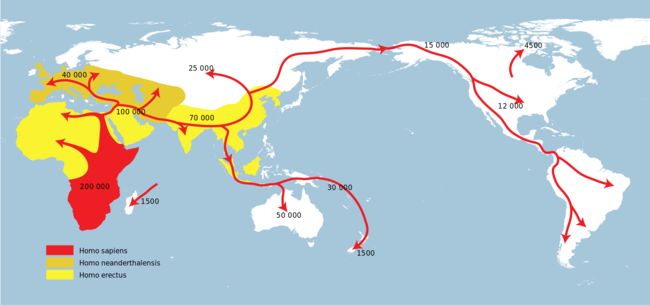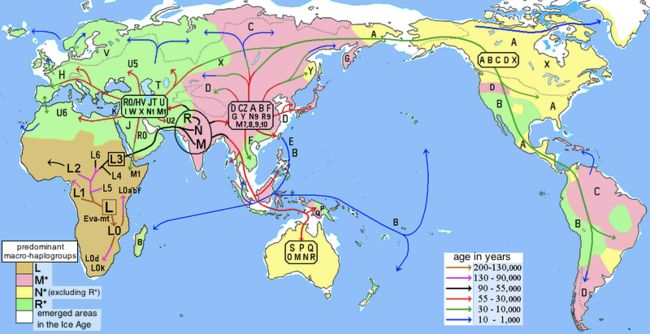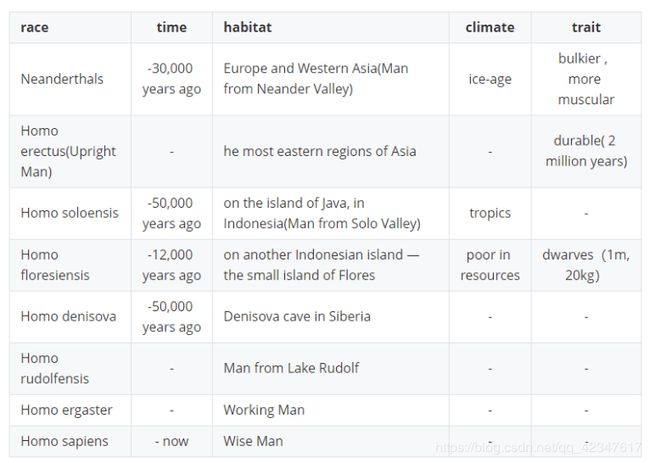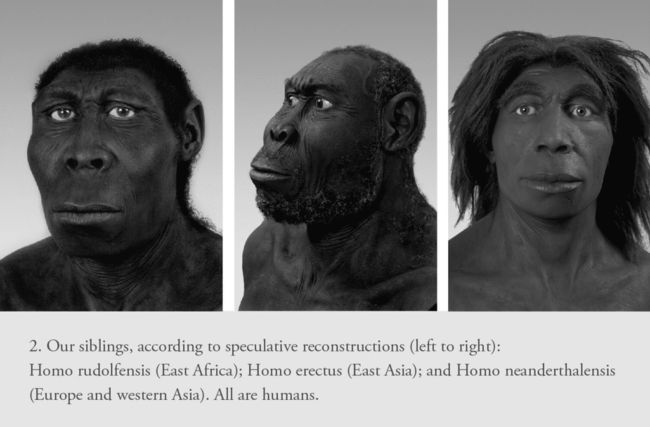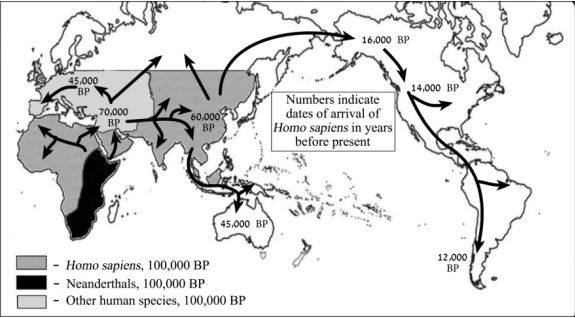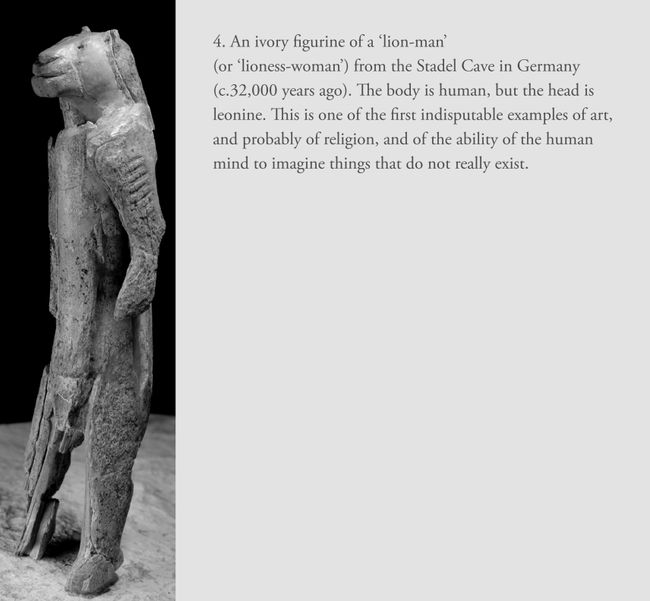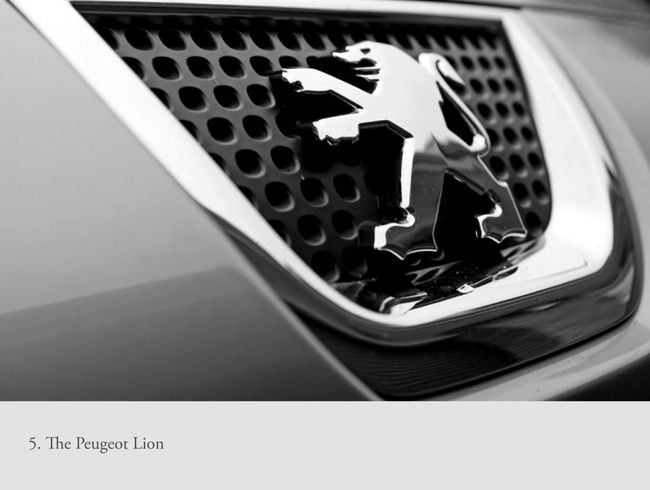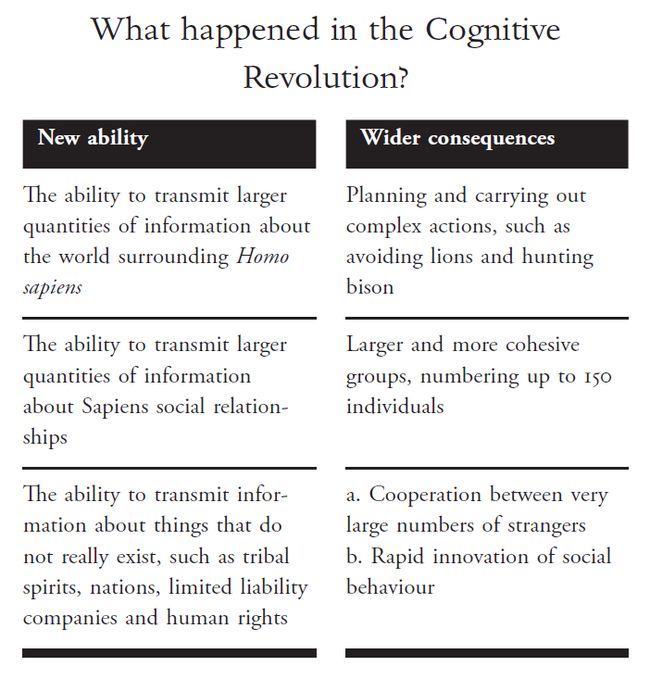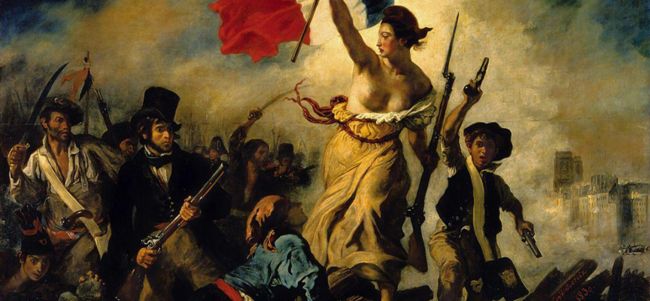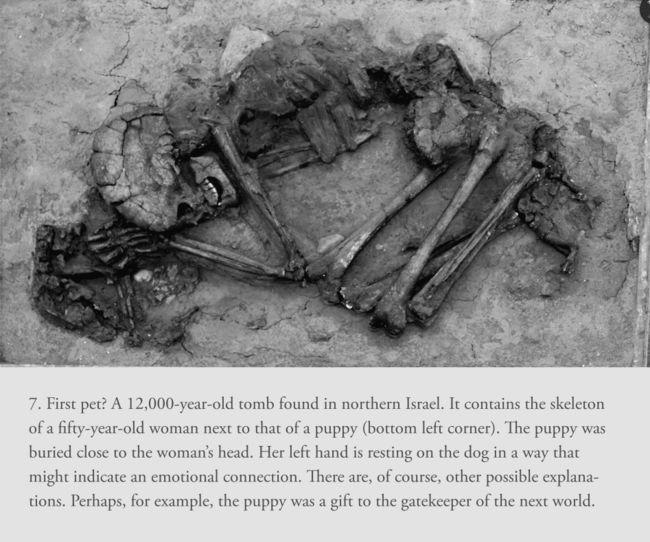A Brief History of Humankind — 01 the cognitive revolution
1. The Cognitive Revolution
1.1 An Animal of No Significance
- Word List:
| Word | Interpretation |
|---|---|
| Domain | n.域 |
| Kingdom | n.界 |
| Phylum | n.门 |
| Class | n.纲 |
| Order | n.目 |
| Family | n.科 |
| genus | n.“属” 名 |
| species | n.“种” 名 |
| Panthera | n.豹 “属” |
| leo | n.狮 “种” |
| gorillas | n.大猩猩 |
| fireflies | n.萤火虫 |
| jellyfish | n.水母 |
- The most important thing to know about prehistory humans is that they were insignificant animals with no more impact on their environment than gorillas , fireflies, or jellyfish.
- Biologists label organisms with a two-part Latin name, genus followed by species.
Lions, for example, are called Panthera leo, the species leo of the genus Panthera. Presumably, everyone reading this book is a Homo sapiens–— the species sapiens (wise) of the genus Homo(man).
- Just 6 million years ago, a single female ape had two daughters. One became the ancestor of all chimpanzees, the other is our own grandmother.
1.2 Skeletons in the Closet
- Word List:
| Word | Interpretation |
|---|---|
| archaic | a.古代的 |
| relatives | n.亲戚 |
| cradle | n.摇篮,发源地 |
| continent | n.大陆 |
- Not only do we possess an abundance of uncivilized cousins; one upon a time we had quite a few brothers and sisters as well.
- “Sapiens” denotes members of the species Homo sapiens, “human” refers to all extant menmbers of the genus Homo.
- 2.5 million years ago: Southern Ape(an earlier genus of apes) --— Human first evolved in East Africa.
- 2 million years ago: migrate through and settle vast areas of North Africa, Europe, and Asia.
- Human species:
- This linear model gives the mistaken impression that at any particular moment only one type of human inhabited the earth, and that all earlier species were merely older models of ourselves.
- The truth is that from 2 million years ago until around 10000 years ago, the world was home, at one and same time, to several human species.
1.3 The Cost of Thinking
- Word List:
| Word | Interpretation |
|---|---|
| enamored | a.迷恋的 |
| jumbo | a.巨大的 |
| savannah | n.大草原 |
| criteria | n.标准 |
| colt | n.小马 |
| forage | v.觅食 |
| devour | v.狼吞虎咽,贪婪地阅读 |
| giraffe | n.长颈鹿 |
| hyena | n.鬣狗 |
| jackal | n.豺 |
| scavenge | v.捡拾 |
| spectaular | a./n.壮观的(场面) |
| pyramid | n.金字塔 |
| in tow | 紧跟在后 |
- Common characteristics: large brain
- In Homo sapiens, the brain accounts for about 2~3 percent of total body weight, but it consumes 25 percent of the body’s energy when the body is at rest.
- Like a government diverting money from defense to eduction, humans diverted energy from biceps to neurons.
- Standing up → easier to scan → arms are freed → perform very intricate tasks with hands.
- Compared to other animals, humans are born prematurely, when many of their vital systems are still underdeveloped.
A colt can trot shortly after birth; a kitten leaves its mother to forage on its own when it is just a few weeks old.
Human babies are helpless, dependent for many years on their elders for sustenance, protection, and eduction. → social abilities and social problems
- Reference:https://www.ithome.com/html/it/364837.htm
- Humans remained weak and marginal creatures during a full two million years.
- Genus Homo’s position in the food chain was, until quite recently, solidly in the middle.
- 400,000 years ago : several species of man began to hunt large game; only in the last 100,000 years --— with the rise of Homo sapiens --— that man jumped to the top of the food chain.
- Humankind ascended to the top so quickly that the ecosystem was not given time to adjust.
- Sapiens by contrast is more like a banana republic dictator.
1.4 A Race of Cooks
- Word List:
| Word | Interpretation |
|---|---|
| domestication | n.驯化 |
| digest | v.消化 |
-
A significant step on the way to the top was the domestication of fire.(800,000 years ago)
-
Homo erectus, Neanderthals and the forefathers of Homo sapiens were using fire on a daily basis,(300,000 years ago)
-
Cook’s favorite:
① kill germs and parasites
② easy to chew and digest
1.5 Our Brothers’ Keepers
- Word List:
| Word | Interpretation |
|---|---|
| overran | v.扩展并占领 |
| landmass | n.大陆 |
| Archeologist | n.考古学家 |
| mingling | a.混合的 |
| revulsion | n.剧变,厌恶 |
| genocide | n.种族灭杀 |
| hitch | v./ n. 搭便车 |
| hitch a ride | 搭便车 |
| the Qur’ran | n.《古兰经》 |
-
150,000 years ago, Humans were still marginal creatures.
-
70,000 years ago, Sapiens from East Africa(which was popolated by Sapiens that looked just like us) spred into the Arabian Peninsula, and from there they quickly overran the entire Eurasian landmass.
-
Two conflicting theories:
| Theory | content | comment |
|---|---|---|
| The Interbreeding Theory | attraction, sex and mingling | Middle East and Europe: Sapiens&Neanderthals = Eurasians; East Asia: Sapiens&Erectus = Chinese and Koreans |
| The Replacement Theory | incompatibility, revulsion and genocide | Reproductive isolation,we are all “pure Sapiens” |
- The Replacement Theory was more politically correct.(the Pandora’s box of racism)
- It turned out that one to four percent of the unique human DNA of populations in the Middle East and Europe is Neanderthal DNA.(in 2010, map the Neanderthal genome were published.)
- Up to six percent of the unique human DNA of modern Melanesians and Aboriginal Australians is Denisovan DNA.
- It seems that about 50,000 years ago, Sapiens, Neanderthals and Denisovans were at that borderline point. They were almost, but not quite, entirely separate species.(A few lucky Neanderthal genes did hitch a ride on the Sapiens Express.)
- Homo sapiens conquered the world thanks above all to its unique language.
1.6 The Great Leap Forward
- Word List:
| Word | Interpretation |
|---|---|
| lamp | n.灯,v.照亮 |
| needle | n.针 |
| sew | v.织衣服 |
| genetic mutations | 基因突变 |
| supple | a.灵活的 |
| staggering | a.惊人的 |
| entities | n.存在 |
| fourth estate | 第四权力 --— 新闻界 |
- The period from about 70,000 years ago to about 30,000 years ago witnessed the invention of boats, oil lamps, bows and arrows and needles(essential for sewing warm clothing)
- The appearance of new ways of thinking and communicating, between 70,000 and 30,000 years ago, constitutes the Cognitive Revolution.
- Two Theory: where our language from?
- genetic mutations theory:the Grate Leap mutation, changed the inner wiring of the brains of Sapiens
- gossip theory:evolved as means of sharing information about world → social animal primarily;evolved as a way of gossiping
- Our language is amazingly supple. As far as we know, only Sapiens can talk about entire kinds of entities that they have never seen, touch or smelt. Speaking about fictions is the most unique feature of Sapiens language.
- Gossip usually focuses on wrongdoings.
- Legends, myths, gods, and religions appeared for the first time the Cognitive Revolution.
1.7 The Legend of Peugeot
- Word List:
| Word | Interpretation |
|---|---|
| hierarchical | a.分等级的 |
| rupture | n./v. 破裂(关系) |
| title | n.称号,头衔 |
| platoon | n.排 (a platoon of 30 soldiers) |
| incarnated | v.体现,人化(化身) |
| crucify | vt. 折磨,克制,被钉在十字架上 |
| redeem | vt.赎回,救赎 |
| secretary | n.(政府机关等)秘书官 |
| invulnerable | a.无懈可击的 |
| immortal | a.不朽的 |
| figment | n.想象的事物(空想) |
| legal fiction | [法律]拟制 |
| creditors | n.债权人 |
| liable | a.有责任的 |
| obligation | n.义务 |
| priest | n.牧师 |
| assiduously | adv.刻苦地 |
| devout | a.虔诚的 |
| consecrated | a.神圣的 |
| parliament | n.议会,国会 (the French parliament) |
| hocus pocus | 花招,骗术 |
| woven | weave的过去分词 |
| sculptor | n.雕刻家 |
- In the wake of the Cognitive Revolution, gossip helped Homo sapiens to form larger and more stable bands.
- (Dunbar’s number)The ceiling of effective gossip is 150 human beings.
- Large number of strangers can cooperate successfully by believing in common myths.(thanks the appearance of fiction)
- Catholics believe that God was incarnated in human flesh and allowed himself to be crucified to redeem our sins.
- Peugeot began as a small family business in the village of Valentigney, just 300 kilometers from the Stadel cave.
- Peugeot is a figment of our collective imagination called by the lawyer “ legal fiction(wiki: A legal fiction is a fact assumed or created by courts which is then used in order to apply a legal rule. Typically, a legal fiction allows the court to ignore a fact that would prevent it from exercising its jurisdiction, by simply assuming that the fact is different. ) “. Although not a physical object , it does exists as a legal entity( bound by the laws of the countries in which it operates).
- Peugeot belongs to a particular genre of legal fiction called “limited liability companies.”(This company were legally independent of the people who set them up, or invested money in them, or managed them)
- According to the French legislators, if a certified lawyer followed all the proper liturgy and rituals, wrote all the required spells and oaths/ on a wonderfully decorated piece of paper, and affixed his ornate signature to the bottom of the document, then hocus pocus - a new company was incorporated.
- Ever since the Cognitive Revolution, Sapiens have thus been living in a dual reality.
On the one hand, the objective reality of rivers, trees and lions; and on the other hand, the imagined reality of gods, nations and corporations.
1.8 Bypassing the Genome
- Word List:
| Word | Interpretation |
|---|---|
| divine | a.神的,神圣的 |
| sovereignty | n.主权,独立国 |
| bonobo | n.矮黑猩猩 |
| initiative | n.主动性,倡议 |
| autocrat | n.独裁者 |
| Mediterranean | n.地中海 |
| Atlantic | n.大西洋 |
| coast | n.海岸 |
| ever since | 自从那时起 |
| Pacific | n.太平洋 |
| totem | n.图腾 |
| cohesive | a.团结的 |
- Myth could be revised rapidly with changing needs opened a fast lane of cultural revolution, bypassing the traffic jams of genetic evolution.
- Yet the fact is that no animal other than Sapiens engages in trade, and all the Sapiens trade-networks about which we have detailed evidence were based on fictions.
- Trade cannot exist without trust, and it is very difficult to trust strangers.
- What happened in the Cognitive Revolution?
1.9 History and Biology
- Word List:
| Word | Interpretation |
|---|---|
| immense | a.巨大的 |
| components | n.零件 |
| pandemonium | n.地狱,大混乱 |
| glue | n.胶水 v.胶粘 |
| arena | n.竞技场,舞台 |
- Once culture appeared, they never ceased to change and develop, and these unstoppable alterations are what we call “history.”
- From the Cognitive Revolution onwards, historical narratives replace biological theories as our primary means of explaining the development of Homo sapiens.
- Comparison:
| Size | Chimpanzees | Sapiens |
|---|---|---|
| <150 | - | similar to Chimpanzees |
| 1000~2000 | pandemonium | regularly |
- Together, they create orderly patterns --— such as trade networks, mass celebrations, and political institutions --— that they could never have created in isolation.
- Yet tool-making is of little consequence unless it is coupled with the ability to cooperate with many others.
- The next chapter takes a peek behind the curtain of the ages, ……
1.10 Being a Hunter-Gatherer
- Word List:
| Word | Interpretation |
|---|---|
| forager | n.采集者 |
| the blink of an eye | 一眨眼功夫 |
| gorge on | 贪婪地吃 |
| binge on | 狂吃猛喝 |
| in the throes of | 处于……的痛苦中 |
| obesity | n.肥胖 |
| instinct | n.本能,直觉 |
| savannah | n.大草原 |
| monogamy family | 一夫一妻制家庭 |
| flimsy evidence | 薄弱的证据 |
| perishable | a.易坏(消亡)的 |
| descendant | n.后代 |
| devise | v.想象,设想 |
| a plethora of | = many 过多的,过剩的 |
| be accoutered by | 被……装备 |
| condom | n.避孕套 |
| Gothic | a. / n. 哥特式的 |
| Muslim | a. / n. 穆斯林的 |
| mosque | n. 清真寺 |
| Hindu ashram | 印度 修行处 |
| Torah | n.教律,犹太教的核心 |
| scroll | n.卷轴 |
| priestly | a.僧侣的 |
| cassock | n.教士服 |
| incense | n.焚香后的烟 v.激怒 |
| ubiquitous | a.无所不在的 |
| toting | v.身背 |
| ritual | n.仪式 |
| evolutionary psychology | 进化心理学 |
| legacies | n.遗产 |
| bewildering | a.令人困惑(混乱)的 |
| palette | n.调色板 |
-
[⑴The past 200 years, during which ever increasing numbers of Sapiens have obtain their daily bread as urban laborers and office workers] —
and —
[⑵the preceding 10,000 years, during which most Sapiens lived as farmers and herders, are the blink of an eye] —
compared to —
[⑶the tens of thousands of years during which our ancestors hunted and gathered].
-
Our eating habits, our conflicts, and our sexuality are all the result of the way our hunter-gatherer mind interact with our current post-industrial environment, with its mege-citied, airplanes, telephone, and computers.
-
This environment gives us more material resources and longer lives than those enjoyed by any previous generation, but it often makes us feel alienated, depressed, and pressured.
-
“gorging gene” theory :
* high-calorie sweets were rare, food was in short supply.
* influence: people gorge on(= binge on) high-calorie food(sweet, greasiest) that is doing little good to their bodies. -
aquarian age(age of aquarian):refer to hippie(嬉皮士) and New Age movements(新纪元运动)
-
“ancient commune” theory:
* ancient foraging bands were not composed of nuclear families which is centered on monogamous couples. (wiki: A nuclear family or elementary family is a family group consisting of a pair of adults and their children. This is in contrast to a single-parent family, to the larger extended family, and to a family with more than two parents.)
* foragers lived in communes devoid of private property, monogamous relationships, and even fatherhood.
* partible paternity
* influence: a) the frequent infidelities that characterize modern marriges. b) the high rates of divorce…… -
“eternal monogamy” theory:
* they were nevertheless comprised of separate cells, each containing a jealous couple and the children they held in common.
* influence:a) monogamous relationship and nuclear families are the norm in the vast majority of cultures. b) today men and women tend to be very possessive of their partners and children. -
The world on the eve of the Agricultural Revolution were divided into thousands of separate tribes with thousands of different languages and cultures, this, after all, was one of the main legacies of the Cognitive Revolution.
-
Ever since the Cognitive Revolution, there hasn’t been a single natural way of life for Sapiens. There are only cultural choices, from among a bewildering palette of possibilities.
1.11 The Original Affluent Society
- Word List:
| Word | Interpretation |
|---|---|
| agricultural | a.农业的 |
| domesticated | a.家养的 |
| simultaneously | adv.同时地 |
| manipulate | v.操纵 |
| trademarks | n.特征 |
| sporadic | a.偶尔发生的 |
| turf | n.领地 |
| calamity | n.灾难 |
| demographic | a.人口的 |
| initiative | n.首创精神 → 倡议 |
| all the same | 尽管如此 |
| it stands to reason that | 显然 |
| it seems safe to say that | 可以确定的是 |
| elastic | n. /a. 橡皮圈 有弹性的 |
| scrounged | v.搜寻 |
| termite | n.白蚁 |
| berry | n.浆果 |
| bison | n.野牛 |
| mammoth | n.猛犸象 |
| notwithstanding | prep.虽然 |
| flint | n.燧石 |
| nourishing | a.有营养的 |
| vicinity | n.附近地区,临近 |
| avalanche | n. /v.雪崩 |
| apprentice | n.学徒 |
| apprenticeship | n.学徒期 |
| basalt | n.玄武岩 |
| foliage | n.叶子(总称) |
| beehive | n.蜂窝 |
| agile | a.灵活的 |
| mortality | n.死亡率 |
| scourges | n.灾难 v.痛斥 |
| slain | v.(slay过去式)杀死 |
| shun | v.避开 |
| domineering | z.盛气凌人的 |
| beware of | 当心,提防 |
| be aware of | 意识到 |
| demonizing | 妖魔化 |
| superficial | a.肤浅的,表面的 |
| acquaintance | n.熟人 |
-
The dog was the first animal domesticated by Homo sapiens, and this occurred before the Agricultural Revolution.
-
Before the Agricultural Revolution, the human population of the entire planet was smaller than that of today’s Cairo(开罗).
-
Occasionally, bands wandered outside their turf and explored new lands, whether due to natural calamities, violent conflicts, demographic pressure, or the initiative of a charismatic leader. This wanderings were the engine of human worldwide expansion.
-
The average forager had wider, deeper, and more varied knowledge of her immediate surroundings than most of her modern descendants.
-
The human collective knows far more today than did the ancient bands.
-
Ancient foragers also suffered less from infectious diseases.
* Ancient foragers, had domesticated only dogs which were free of these scourges.
* people in agricultural and industrial societies lived in dense, unhygienic permanent settlements --— ideal hotbeds for disease. -
The wholesome and varied diet, the relatively short working week, and the rarity of infectious diseases.
-
We should beware of demonizing or idealizing it on the basis of a superficial acquaintance.
1.12 Talking Ghosts
- Word List:
| Word | Interpretation |
|---|---|
| humdrum | a.无趣的 |
| suffice | v.足够 |
| decipher | v.解密 |
| animistic | a.相信万物有灵的 |
| animist | n.泛灵论者 |
| animism | n.泛灵论 |
| anima | n.生命,灵魂 |
| animated | a.有生命的 |
| entity | n.实体,对象 |
| malevolent | a.有恶意的 |
| ceremony | a.仪式,典礼 |
| sentence | n.判决,判刑 |
| staple | n.订书钉, 主食 |
| euthanasia | n.安乐死 |
| bracelet | n.手链 |
| tomb | n. /v. 墓穴 |
| statuette | n. 小雕塑 |
| ritually | adv. 仪式地 |
| rite | n.仪式 |
| circumstance | n.条件 |
| adorned …… with …… | 用…装饰…… |
- The Aché people(亚契人): The need to evade their enemies probably caused the Aché to adopt an exceptionally harsh attitude toward anyone who might become a liability to the band.
- They viewed the killing of children , sick people, and the elderly as many people today view abortion and euthanasia.
- Most scholar agree that animistic beliefs were common among ancient foragers.
- Animism(from “anima”, soul or spirit in Latin) is the belief that almost every place, every animal, every plant, and every natural phenomenon has awareness and feelings, and can communicate directly with humans.
- Theism(from “theos,” god in Greek) is the view that the universal order is based on a hierarchical relationship between humans and a small group of ethereal entities called gods.
- Whatever the correct answer, the Sungir children are among the best pieces of evidence that 30,000 years ago Sapiens could invent sociopolitical codes that went far beyond the dictates of our DNA and the behavior patterns of other human and animal species.
1.13 Peace of War?
- Word List:
| Word | Interpretation |
|---|---|
| thorny | a.棘手的 |
| paradises | n.天国 |
| castles in the air | n.空中楼阁 |
| intrigue | n.阴谋 v.欺骗,引起兴趣 |
| intriguing | a.迷人的 |
| Arctic | n./a. 北极 |
| Kalahari | n.喀拉哈里沙漠 |
| scarce | a.罕见的 /ad. 仅仅 |
| opaque | a.不透明的 |
| fortification | n.防御工事 |
| artillery shell | b炮弹弹壳 |
| Portugal | n.葡萄牙 |
| Israel | n.以色列 |
| Danube | n.多瑙河 |
| tranquility | n.平静 |
| riven | a.撕裂的 (rive → riven) |
| ferocious | a.残忍的 |
- The role of war in forager socities :
* peaceful paradises, war and violence began only with the Agricultural Revolution, when people started to accumulate private property.
* exceptionally cruel and violent - Both schools of thought are castles in the air, connected to the ground by the thin strings of meager archeological remains and anthropological observations of present-day foragers.
- During the 20th century, only 5 percent of human deaths resulted from human violence — and this in a century that saw the bloodiest wars and most massive genocides in history.
- Evidences:
| location | event |
|---|---|
| Danube Valley | as violent as the twentieth centry |
| Jabl Sahaba in Sudan | 12,000-year-of cemetery |
| Ofnet Cave in Bavaria | 38 foragers(mainly women and children) were buried |
- Foragers demonstrate a variety of violence rates. While some areas and some periods of time may have enjoyed peace and tranquility, others were riven by ferocious conflicts.
1.14 The Curtain of Silence
- Word List:
| Word | Interpretation |
|---|---|
| curtain | n.窗帘 / v.遮住 |
| millennia | n.一千年(millennium的复数) |
| ecstatic | a.热情的 |
| Luxembourg | n.卢森堡(欧洲西北部) |
| Beethovens | n.贝多芬 |
| Napoleon | n.拿破仑 |
| let alone | 更不用说 |
- When a Sapiens band first entered a valley inhabited by Neanderthals, the following years might have witnessed a breathtaking historical drama.
- These long millennia may well have witnessed wars and revolutions, ecstatic religious movements, profound philosophical theories, incomparable artistic masterpieces.
- The wandering bands of story-telling Sapiens were the most important and most destructive force the animal kingdom had ever produced.
1.15 The Great Extinction
- Word List:
| Word | Interpretation |
|---|---|
| feat | n.绝技,功绩 |
| lndonesian archipelago | n.印第安群岛 |
| seafaring | a.航海的 |
| hydrodynamic | a.流体力学的 |
| seafarer | n.航海者 |
| flipper | n.脚蹼,鳍 a.(口)轻率的 |
| circumstantial | a.详细的,间接的 |
| terrestrial | a.陆生的 |
| pioneer | n./v.先驱,开拓者 |
| negligible | a.微不足道的 |
| expunge | v.擦除,删除 |
| kangaroo | n.袋鼠 |
| marsupial | n.有袋哺乳动物 |
| koala | n.考拉 |
| ostriches | n.鸵鸟 |
| sprint | v.冲刺 |
| lizard | n.蜥蜴 |
| slither | n./v.(蛇)爬行 |
| undergrowth | n.灌木丛 |
| diprotodon | n.双门齿兽 |
| wombat | n.袋熊 |
- The most reasonable theory suggests that, about 45,000 years ago, the Sapiens living in the lndonesian archipelago developed the first seafaring societies.(To Australia)
- The settlers of Australia, or more accurately, its conquerors, didn’t just adapt, they transformed the Australian ecosystem beyond recognition.
- Within a few thousand years, virtually all of these giant vanished. A large number of smaller species also disappeared. Food chains throughout the entire Australian ecosystem were broken and rearranged.
1.16 Guilty as Charged
- Word List:
| Word | Interpretation |
|---|---|
| exonerate | v.使免罪 |
| vagary | n.奇想 |
| vagaries | n.变幻莫测 |
| scapegoat | n.替罪羊 |
| innocent | a./n.天真无邪的(人) |
| alibi | n.托辞 |
| upheaval | n.动乱,大变动 |
| fluke | n.意外 |
| mega-fauna | n.巨型动物群 |
| obliterate | v.消灭,冲刷 |
| burgeon | n.嫩枝 v.发芽,迅速成长 |
| burgeoning | a.生机勃勃的,迅速发展的 |
| menace | n.威胁 |
| akin | n.同类的,类似的 |
| archetypal | a.原型的,典型的 |
| ensuing | a.接下来的 |
| ensue | v.跟着发生,因而发生 |
| irrefutable | a.无可辩驳的 |
| mammoth | n.猛犸象 |
| conspicuously | adv.明显地,引人注目地 |
| without a scratch | 毫发未损 |
| grant/give sb. the benefit of the doubt | 姑且相信.(grant v.授予) |
| hone | v.磨刀→磨练 n.磨刀石 |
| inaugurate | v.开创 |
| recuperate | v.恢复 |
| push …… into the abyss | 把……推入深渊 |
-
Prior to the Cognitive Revolution, humans of all species lived exclusively on the Afro-Asian landmass.
-
Following the Cognitive Revolution, Sapiens acquired the technology, the organizational skills, and perhaps even the vision necessary to break out of Afro-Asia and settle the Outer World.
-
The moment the first hunter-gather set foot on an Australian beach was the moment that Homo sapiens climbed to the top rung in the food chain on a particular landmass and thereafter became the deadliest species in the annals of planet Earth.
-
Some scholars try to exonerate our species, placing the blame on the vagaries of the climate(the usual scapegoat in such cases).
-
Three evidence:
* it wasn’t a remarkable upheaval. It is in constant flux.
* only terrestrial mega-fauna disappeared while sea creatures(nearby oceans) weren’t influenced.
* it occurred again and again in the ensuing millennia --— whenever people settled another part of the Outer World. -
The historical record makes Homo sapiens look like an ecological serial killer.
-
All the settlers of Australia had at their disposal was Stone Age technology.
-
Three explanation of the cause of ecological disaster:
* Large animals breed slowly, and they didn’t learn to avoid humans.
* Sapiens had already mastered fire agriculture.(Sapiens inaugurated a golden age for Eucalyptus trees, which are particularly resistant to fire)
* both are right but we can’t ignore the role of climate.
1.17 The End of Sloth
- Word List:
| Word | Interpretation |
|---|---|
| sloth | n.树懒 |
| arduous | a.艰巨的 |
| mastodon | n.乳齿象 |
| rhinoceros | n.犀牛 |
| reindeer | n.驯鹿 |
| glacier | n.冰川 |
| blitzkrieg | n.闪电战 |
- It was followed by an even larger ecological disaster, this time in America.
- The first Americans arrived on foot, which they could do because, at the time, sea levels were low enough that a land bridge connected northeastern Siberia with northwestern Alaska.
- Perhaps some bands were driven north by wars, demographic pressures, or natural disasters. Others might have been lured northwards by more positive reasons, such as animal protein.
- Around 14,000 BC, the chase took some of them from northeastern Siberia to Alaska.
- At first, glaciers blocked the way from Alaska to the rest of American, allowing no more than perhaps a few isolated pioneers to investigate the lands further south.
- However, around 12,000 BC global warming melted the ice and opened an easier passage.
- The human blitzkrieg across America testifies to the incomparable ingenuity and the unsurpassed adaptability of Homo sapiens.
- No other animal had ever moved into such a huge variety of radically different habitats so quickly, everywhere using virtually the same genes.
